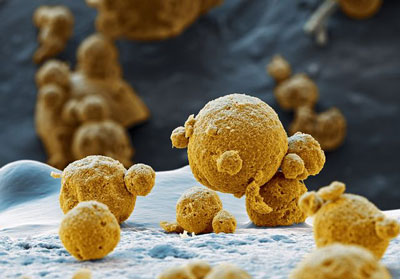| Posted: March 25, 2009 |
Podcast explains how chemistry improves the efficiency of lithium ion batteries |
|
(Nanowerk News) In this podcast you will learn how chemistry improves the efficiency of lithium ion batteries.
|
|
In comparison to other battery types, lithium-ion batteries have some major advantages. For one, they are the most efficient battery on the market right now. In order to make a decisive improvement on today's technology, BASF, together with other companies, is investing in further research and development of lithium-ion batteries. High performance, low weight and a fast charge up - if these plus points can be developed and expanded even further, then the lithium-ion battery really will be the energy store of the future and a key technology for climate friendly mobile and stationary energy supplies as well.
|
 |
| These particles are so-called embedded metal oxide compounds, which make batteries and storage batteries safer. Lithium ions are embedded in a metal oxide crystal framework while the electrons are distributed throughout the particle. Thus elementary lithium is no longer formed. This is flammable and can – if the battery is damaged – ignite other battery components. (Image: BASF)
|
|
BASF Corporate Communications started a regular bilingual Podcast service in April 2007 to report on BASF's innovations and research and development activities in an easy-to-understand, informative and entertaining way.
|
|
Listen to the audio reportage with Dr. Philipp Hanefeld (Senior Manager Batteries at BASF Future Business), Dr. Klaus Leitner (Research coordinator Electrochemical Processes BASF) and Dr. Prashant Chintawar (Senior Manager BASF Future Business, Somerset, New Jersey).
|
|
Podcast Chemistry of Innovations, English editions: http://www.basf.com/podcast
|

